Last Updated on January 13, 2025
Expert Boiler Installation in Rothwell
A new boiler will make all the difference in ensuring your home and business are more energy-efficient. Your old boiler most likely has wear and tear from years of use, which means that its parts are becoming faulty and, therefore, less energy-efficient.
A new boiler will lower your home and business’s energy bills, be better for the environment, and provide reliable heating for your property.
The number of options on the market can make choosing a boiler challenging. Picking the correct boiler size is vital to ensure your property has reliable heating. Because of this, you need to consult with Gas Safe registered engineers. They will help you make the right decision and carry out your boiler installation.
Eco Happy’s engineers are Gas Safe registered. We offer everything from guidance in choosing the right boiler to expert boiler installations in Rothwell, West Yorkshire. We have helped thousands of homeowners and businesses throughout the UK reduce energy bills, become more energy-efficient, and lower their carbon footprints.
Your quote is almost
in your inbox
Just a few more details are needed.
What Type Of Boiler Do You Need
A boiler is a big investment for your property, so making the right choice is important. Below are the various boiler types to consider for your home or business.
Combination (combi) Boiler
Combi boilers are single-unit boilers fueled by natural gas, electricity or oil. They heat water for taps and showers and provide central heating for your home.
A combi boiler draws water from the main water supply and heats water on demand once a hot water outlet or central heating system is turned on. It does not need a hot water cylinder or storage tank, making it a very compact unit.
These boilers have little to no standby heat loss. They are highly energy efficient and will ensure lower energy bills.
Combi boilers are best for smaller properties like apartments or townhouses with one or two bathrooms and low to medium hot water and central heating demands. Their compact size also suits homes with limited space.
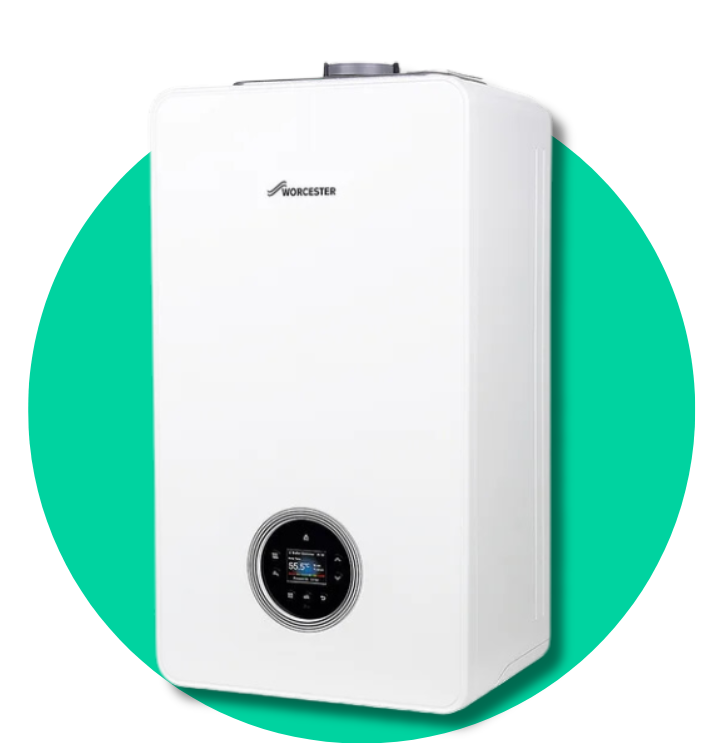
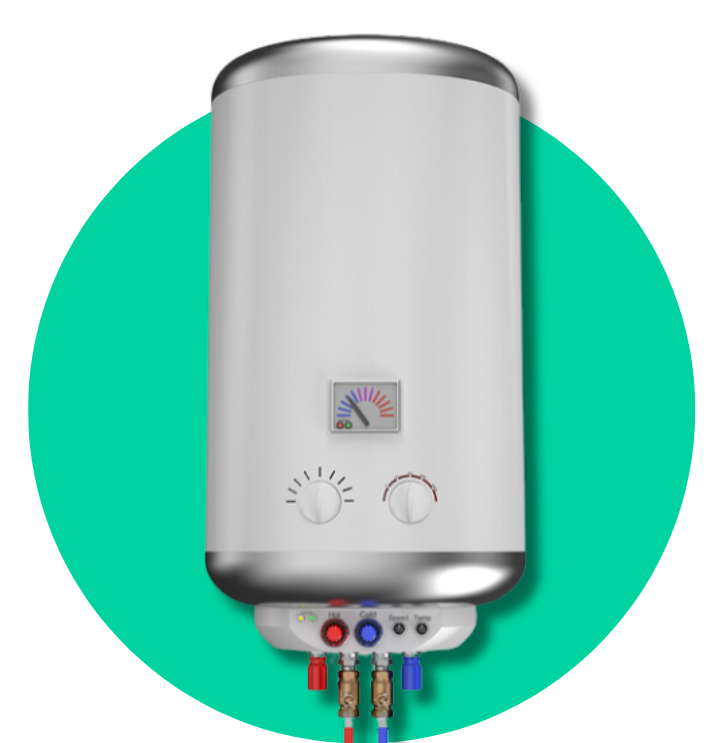
System boiler
System boilers use a heat exchanger, where water is heated by a burner fueled by gas or oil.
The heated water is stored in a separate hot water cylinder, which takes up considerable space.
System boilers can heat a large amount of water, providing hot water and heat to multiple outlets. Additionally, their simple design makes them easy for heat engineers to fix when maintenance is needed. They are also quite energy efficient and can integrate with renewable energy sources like solar panels.
System boilers are best for large homes or small commercial properties as the hot water storage tank requires sufficient space.
Conventional boiler
Conventional boilers are the most widely used in the UK.
These boilers work almost identically to system boilers, except that they also have a tank where cold water is stored – typically in the loft. They also use a heat exchanger, where water is heated by a burner fueled by gas or oil. The heated water is then stored in a separate tank, ready for use.
They are very durable, so with proper maintenance, conventional boilers can provide reliable heating for well over a decade. However, It is important to note that conventional gas boilers are currently being phased out in the UK due to their carbon emissions. This means they aren’t going to be a good long-term investment.
Conventional boilers are best used in large households or commercial properties with lots of bathrooms and high demands for heat. They produce a high heat output and can heat multiple water sources simultaneously.
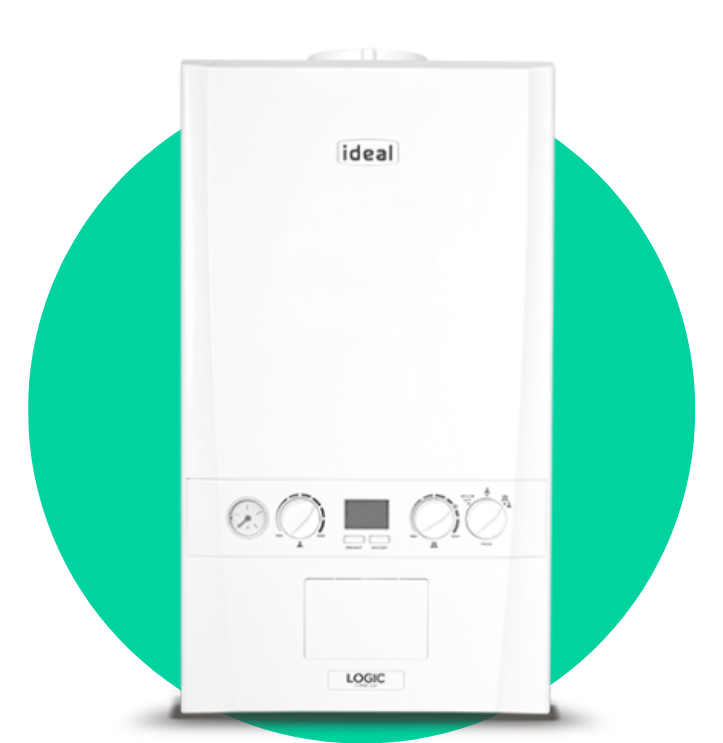
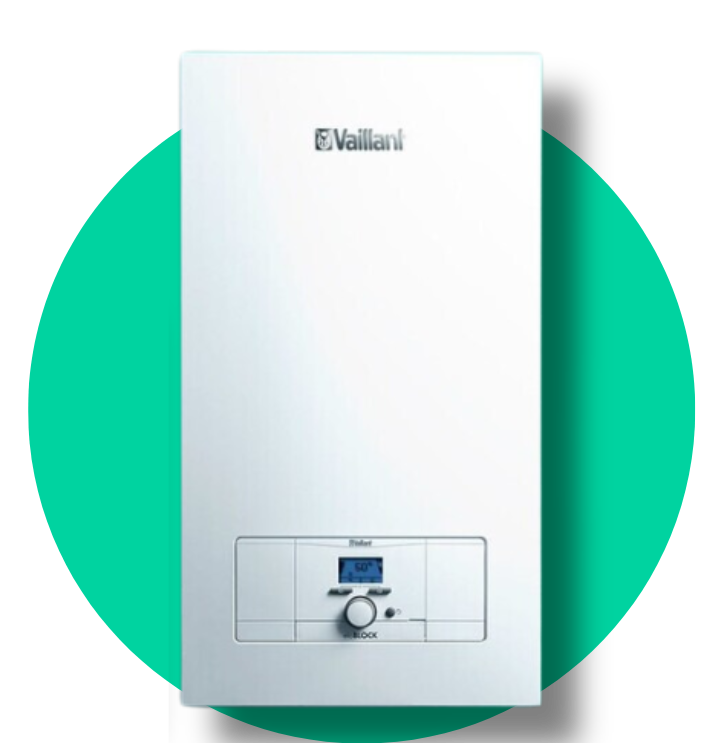
Electric boiler
Electric boilers use electricity to heat water. They are an energy-efficient option and are also an excellent choice for properties where boilers fueled by gas or oil are not permitted, or the property isn’t connected to the gas grid.
Electric boilers are a great option for apartments, smaller homes, and small-scale commercial properties because they are small and don’t require additional space for a flue or chimney because they don’t use gas or oil as a fuel supply, and therefore, don’t require ventilation.
Biomass boiler
Biomass boilers are fueled by burning natural materials, the most common being wood, in the form of pellets, logs, or wood chips. These boilers are the most environmentally friendly option seeing that they don’t use fossil fuels. Biomass boilers are suitable for medium- or large-sized homes and businesses.
Something to note is that these boilers have a high upfront cost to install. However, the materials used to run a biomass boiler will be cheaper than those fueled by gas, oil, or LPG.
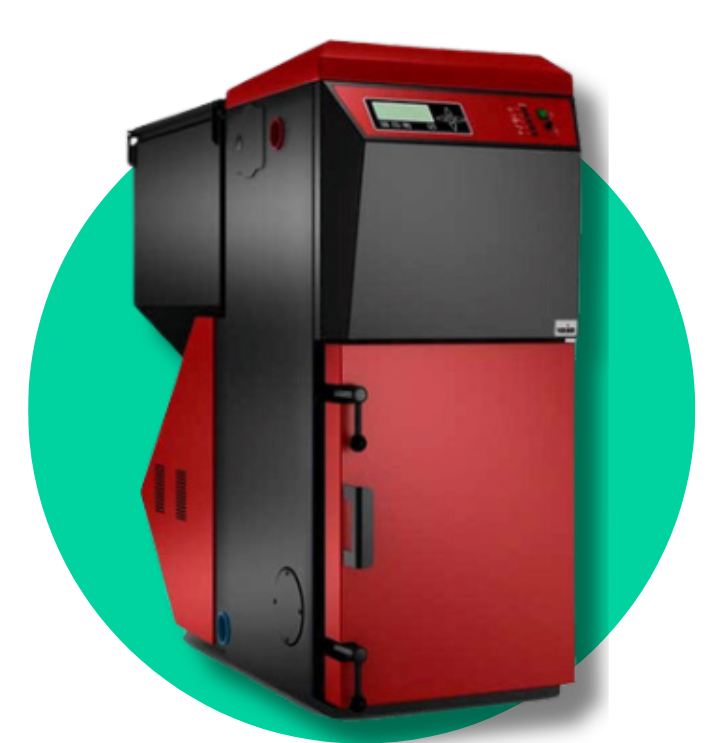
How Much Does It Cost To Install A New Boiler In Rothwell?
The costs of installing a new boiler in Rothwell will vary depending on the type of boiler you choose and the complexity of the installation.
Factors that determine the installation cost include:
- Whether you are replacing your current boiler with the same or different type of boiler
- Property size
- Upgrading your pipework
- Location change of your boiler placement
Below are the estimated costs of installing a new boiler in your home or commercial business.
New Boiler Costs For Homes
One-bedroom home
| Boiler type | Cost (excluding installation) | Cost (including Installation) | Average cost (with installation) |
|---|---|---|---|
| Combi boiler | £600 – £2,500 | £1,600 – £3,500 | £2,550 |
| System boiler | £600 – £2,500 | £1,800 – £3,400 | £2,600 |
| Conventional boiler | £600 – £2,500 | £1,800 – £3,500 | £2,650 |
| Electric boiler | £550 – £2,500 | £1,450 – £3,500 | £2,475 |
| Biomass boiler | £4,000 – £8,000 | £6,000 – £10,000 | £8,000 |
Two bedroom home
| Boiler type | Cost (excluding installation) | Cost (including Installation) | Average cost (with installation) |
|---|---|---|---|
| Combi boiler | £600 – £2,500 | £1,700 – £4,000 | £2,850 |
| System boiler | £600 – £3,000 | £1,800 – £4,000 | £2,900 |
| Conventional boiler | £600 – £2,800 | £2,000 – £4,000 | £3,000 |
| Electric boiler | £600 – £2,600 | £1,600 – £3,900 | £2,750 |
| Biomass boiler | £5,000 – £10,000 | £8,,000 – £12,000 | £10,000 |
Three to four-bedroom home
| Boiler type | Cost (excluding installation) | Cost (including Installation) | Average cost (with installation) |
|---|---|---|---|
| Combi boiler | £1,400 – £3,000 | £2,600 – £4,500 | £3,550 |
| System boiler | £1,500 – £3,700 | £2,600 – £4,700 | £3,650 |
| Conventional boiler | £1,500 – £3,700 | £2,700 – £4,900 | £3,800 |
| Electric boiler | £1,400 – £3,300 | £2,500 – £4,500 | £3,500 |
| Biomass boiler | £7,000 – £14,000 | £10,000 – £18,000 | £14,000 |
Five or more bedrooms
| Boiler type | Cost (excluding installation) | Cost (including Installation) | Average cost (with installation) |
|---|---|---|---|
| Combi boiler | £1,500 – £3,500 | £2,600 to over £4,500 | £3,550 |
| System boiler | £1,600 – £4,300 | £3,000 to over £5,000 | £4,000 |
| Conventional boiler | £1,600 – £4,500 | £2,900 to over £5,000 | £3,950 |
| Electric boiler | £1,550 – £3,500 | £2,500 to over £4,500 | £3,500 |
| Biomass boiler | £8,000 – £15,000 | £10,000 to over £20,000 | £15,000 |
New Boiler Costs For Commercial Businesses
Below are tables showing the estimated boiler costs for small, medium, and large businesses.
Small Businesses
| Boiler type | Cost (excluding installation) | Cost (including Installation) | Average cost (with installation) |
|---|---|---|---|
| Combi | £600 – £2000 | £1,900 – £3300 | £2600 |
| System | £600 – £2900 | £600 – £3500 | £2050 |
| Conventional | £600 – £2700 | £1800 – £4000 | £2900 |
| Electric | £550 – £1750 | £1900 – £3000 | £2450 |
| Biomass | £5000 – £10000 | £10000 – £16000 | £13000 |
Medium Businesses
| Boiler type | Cost (excluding installation) | Cost (including Installation) | (Average cost with installation) |
|---|---|---|---|
| Combi | £1000 – £4000 | £3000 – £6000 | £4500 |
| System | £1200 – £5000 | £3300 – £7000 | £5150 |
| Conventional | £1200 – £5000 | £3200 – £7000 | £5100 |
| Electric | £1200 – £4000 | £3200 – £6500 | £4850 |
| Biomass | £6000 – £12000 | £11000 – £20000 | £15500 |
Large businesses
Large businesses will likely need much larger boilers. They have a significantly higher demand for hot water and heating, so they will require industrial boilers with 100 to 200 kW power outputs.
For this reason, boilers for large businesses are often exponentially more expensive than for small or medium-sized businesses. The table below shows the estimated costs of installing a new boiler for large businesses.
| Boiler type | Cost (excluding installation) | Cost (including Installation) | Average cost (with installation) |
|---|---|---|---|
| System | £5000- £10000 | £12500- £20000 | Varies widely |
| Conventional | £5000- £10000 | £12500- £20000 | Varies widely |
| Electric | £5000- £10000 | £12500- £20000 | Varies widely |
| Biomass | £15000- £30000 | £20000- £40000 | Varies widely |
What Size Boiler Do You Need?
Like the types of boilers available, boiler sizes also vary. Usually, boilers range from 10kW to over 70kW. Your boiler size will depend on the property’s size and insulation. A larger property with a higher hot water and heating demand will need a much larger boiler than one with a lower demand.
Insulation is also important when deciding what size boiler you need. A well-insulated property means less heat loss, and you can get away with a smaller boiler for your central heating needs. The number of radiators on a property will also impact the size of the boiler you need, with more radiators needing a larger heating output.
Below are the estimated boiler sizes you will need for homes and commercial businesses.
For homes
| Number of bedrooms | Number of bathrooms | Number of radiators | Size of boiler | Type of boiler |
|---|---|---|---|---|
| 1-2 | 1 | 0-10 | 18- 27kW | Combination, conventional, electric |
| 3-4 | 2-3 | 10-15 | 28-34kW | System or conventional |
| 5 or more | 4 or more | 15-20 | 35-43kW | Conventional, biomass, system |
For commercial businesses
The size of your boiler will depend on the size of your commercial business. Small and medium-sized businesses will require smaller boilers than large-scale businesses. This is due to hot water demand, the number of rooms on the property, and the number of radiators the property contains.
Below is a table with the estimated boiler sizes that your commercial property will need.
| Size | Number of hot water points | Number of radiators | Size of boiler | Type of boiler |
|---|---|---|---|---|
| Small | 1 | 1-9 | 18- 24kW | Combi, conventional, electric |
| Medium | 3 or more | 10-20 | 35-45kW | Conventional, system, electric, biomass |
| Large | Over 20 | 20 or more | 55kW and more | Conventional, system, biomass |
What Are The Best Boiler Brands?
According to industry experts, these are the top 5 boiler brands in the UK.
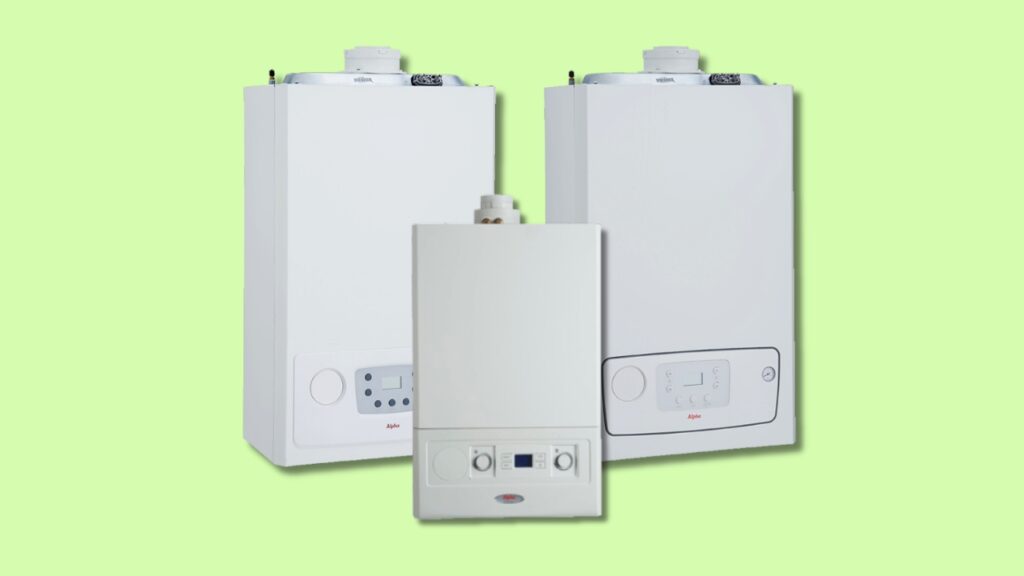
Alpha
Alpha boilers have gained an excellent reputation regarding affordability and quality. Their most stand-out boiler is the E-Tec Plus combi boiler which is one of the most highly recommended boilers on the market. Alpha’s boilers come with a 7 to 10-year warranty.
Viessmann
The Viessman boiler range is affordable and of exceptional quality. Their most popular boiler is the Vitodens, which comes with a 7-year warranty. Most of Viessman’s other boilers also come with a 7 to 10-year warranty.
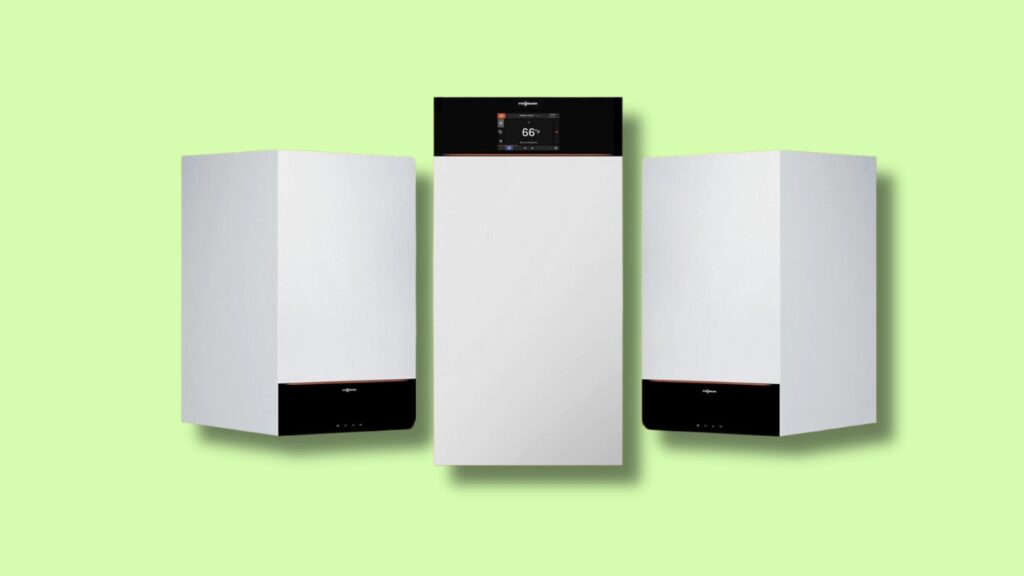
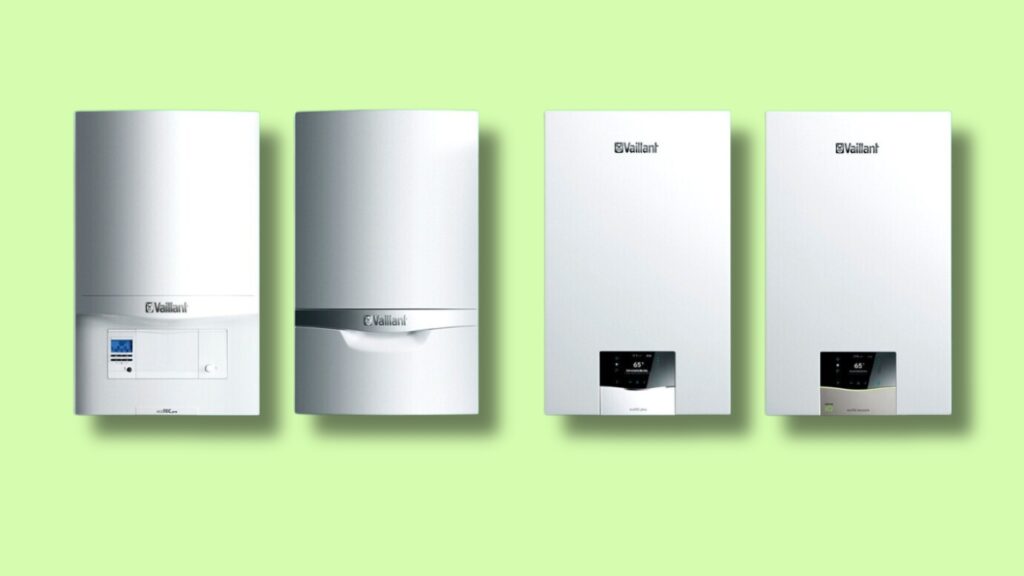
Vaillant
Vaillant is one of the UK’s oldest, most reliable, and most affordable boiler brands. The brand supplies combi, system, and conventional boilers. Vaillant is also committed to an environmentally friendly approach.
Worcester Bosch
The reason Worchester stands out on the market is because of the length of its warranty. With a warranty of 12 years, it pays tribute to the brand’s quality. On top of that, they are also highly affordable.
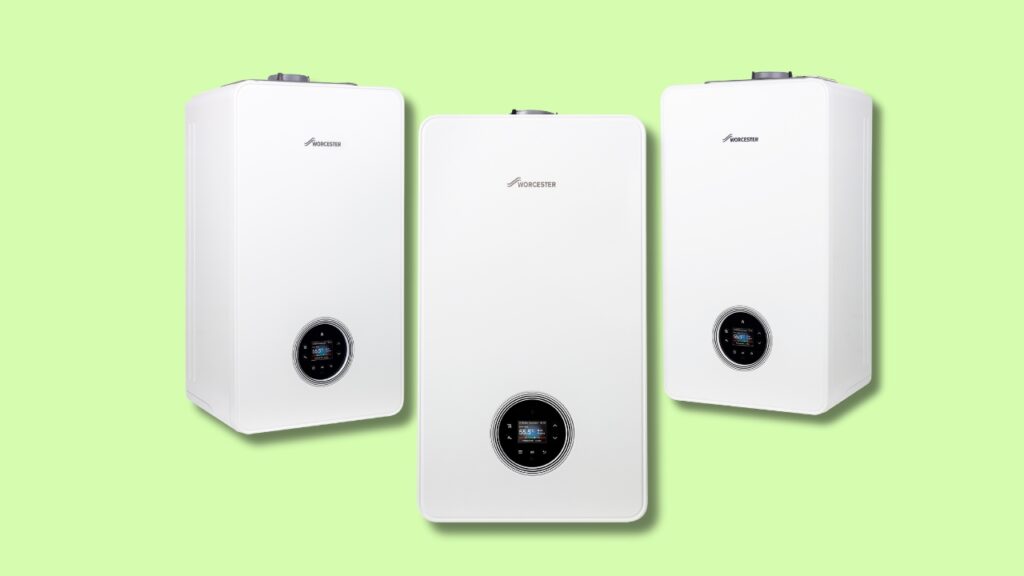
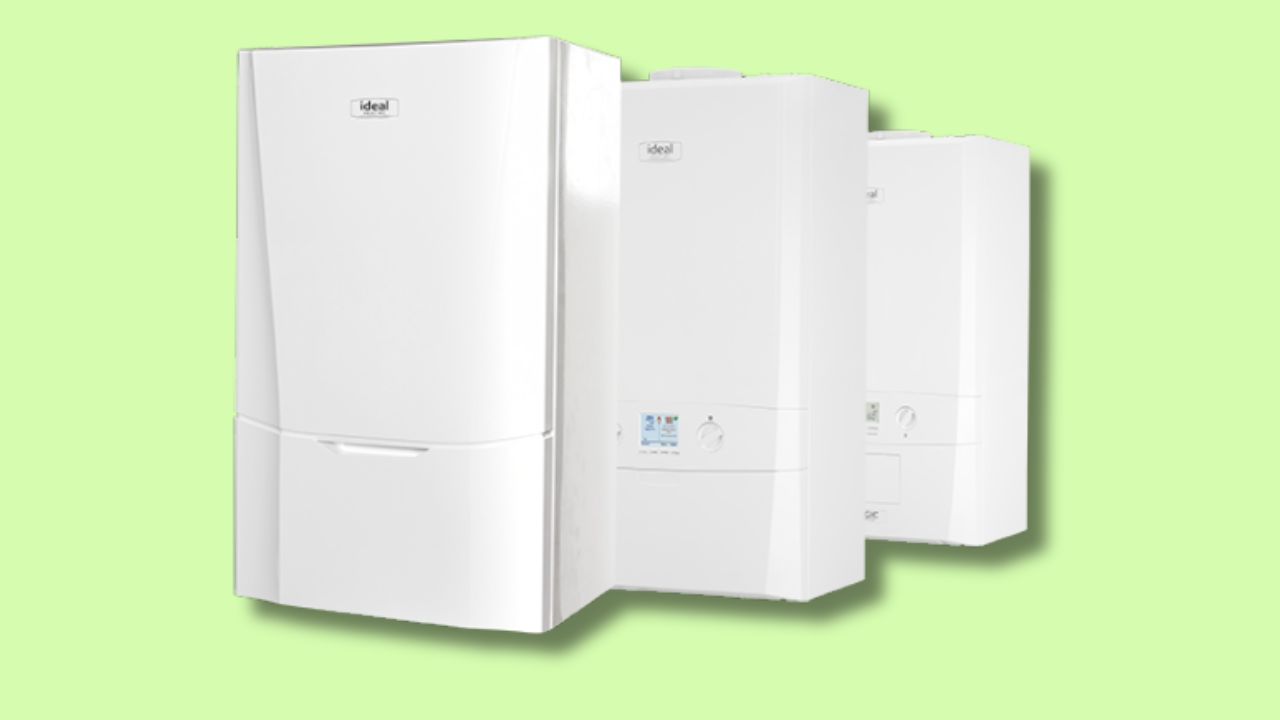
Ideal
Ideal boilers have an excellent reputation for efficiency. They offer conventional, system, and combi boilers of all sizes. This means that they cater to everyone’s needs. Ideal boilers also come with a warranty of 10-12 years.
When Should You Install A New Boiler?
Whether you need a boiler service or opt for a complete boiler replacement will depend on several factors. Generally, you should replace your boiler if it is over 10- 12 years old or needs constant servicing, which will cost you more money to fix than buying a new one.
Below are some signs to look out for when you need to replace your boiler:
- You need help finding parts to repair it, which could indicate it is too old
- Constant leaking
- Making abnormal sounds
- Low water pressure
- Rancid smells
- Your water and energy bills are abnormally high (despite no change in usage behaviour)
The best time of year to install a new boiler is in summer.
Boiler companies and heating engineers will be less busy during summer. Winter months are chaotic regarding boiler emergencies, so it is not a great idea to try to schedule an installation then.
Why Choose Eco Happy?
We are your trusted, reliable and professional boiler installers in Rothwell, West Yorkshire.
Gas Safe registered
Getting your boiler installed by a professional is essential in ensuring its efficiency and your health and safety. Unprofessional boiler replacements can cause fatal injuries and gas leakages that cause carbon monoxide poisoning. This is why your boiler needs to be installed by a Gas Safe registered heat engineer. All of Eco Happy’s heat engineers are Gas Safe registered.
Fast response times
Communication is essential for maintaining happy customers. No matter what time of year it is, Eco Happy will be here to answer your questions and carry out your boiler installation within a few days.
Professional and reliable
We have obtained a professional and reliable reputation. Our customers have left us many great reviews, showing appreciation to us for getting to our appointments on time and working efficiently to get the job done to the highest industry standards.
Installation of all boiler types
Our customers are our top priority. You can contact our professional team, who will answer any questions regarding prices and services. They will happily explain the boiler installation process to you until you feel confident in making a decision.
Customer service
Our engineers are incredibly versatile. They have expert knowledge in installing combi, system, conventional, electric, and biomass boilers. You can be confident that we can execute any type of boiler installation professionally and safely.
Get Your New Boiler Installation Quote Today
For boiler installations for your home or business, simply fill out our online form; it’s free and quick to complete. We will email your quote shortly after!
FAQs
Other Areas We Service Near Rothwell, UK
Our services are country-wide at Eco Happy, stretching far beyond Rothwell! Please take a look at the other areas we service below.





James Elston
Boiler Expert
James Elston is the top boiler replacement and heating expert at Eco Happy. He has over 20 years of experience in the industry, focusing on Gas Safe boiler installations and offering home-heating and energy-saving solutions to homeowners across the UK. From sourcing the most energy-efficient combi boiler to providing specialist heating advice, James ensures that Eco Happy maintains the highest standards and best customer service.